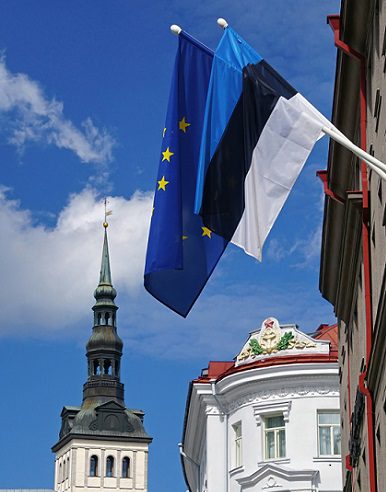
Lessons from the Baltic
On the eastern shores of the Baltic Sea lie the three small countries of Estonia, Latvia, and Lithuania. These Baltic States have much to teach anyone who doubts the foundations upon which our nation is built.
For centuries, neighboring empires ruled the land of the Baltic States, most notably the Russians. Despite their difficult history, all three Baltic States achieved full independence after World War I. This did not last long. In the late 1930s, the Baltic States were ‘allocated’ to the Soviet Union under the secret pact between Stalin and Hitler to carve up Eastern Europe. Hitler soon reneged on the agreement and invaded the Soviet Union. After some of the bloodiest fighting of World War II, the Soviets expelled the Nazis and reoccupied the Baltic States, an occupation that lasted for almost 50 years.
While most of the world would soon be transfixed by the fall of the Berlin Wall in 1989, the Baltic States were already fighting their own battle for freedom. They did not wage a revolutionary war, but their resistance was steadfast and exemplary. In one magnificent protest, an estimated two million people formed a human chain, the ‘Baltic Way’, along the 420 miles between the three countries’ capitals. The fight culminated in lives being lost during the violent death throes of the Soviet Union.
By the early 1990s, all three countries were free, but they were also poor, had no established political institutions, and were scarred by 50 years of brutal occupation by Nazi and Soviet alike. Unfazed, all three countries set about building democratic systems based on principles very similar to those adopted by our Founding Fathers. Individual freedom and property rights are two notable examples. Such attempts at establishing democracy are often quickly snuffed out by power-hungry individuals. This did not happen in the Baltic States, despite the presence of many ethnic Russians who had moved there during Soviet rule.
After just over thirty years, the fruits of these democratic systems built on freedom are clearly on show. Estonia, for example, has been one of the fastest-growing countries in the European Union since it was admitted in 2004. It has become known for successful tech startups, including Skype, Wise, and Bolt (a European version of Uber). Perhaps just as important for Western Europe and the US, the Baltic States understand the threat of the Russian Bear growling immediately to their east. Their freedom was won recently and at a significant cost. They are not ready to accept the inevitable brutality of a centralized system like that of modern-day Russia.
We rightly celebrate our own freedoms and the way they were won almost 250 years ago and reinforced by sacrifice over two world wars. But however meaningful our celebrations may be, they lack the force of very recent experience. That is not the case for the Baltic States. They remember clearly what central control looks like and how vital it is to protect their freedom.
Richard Rushton
